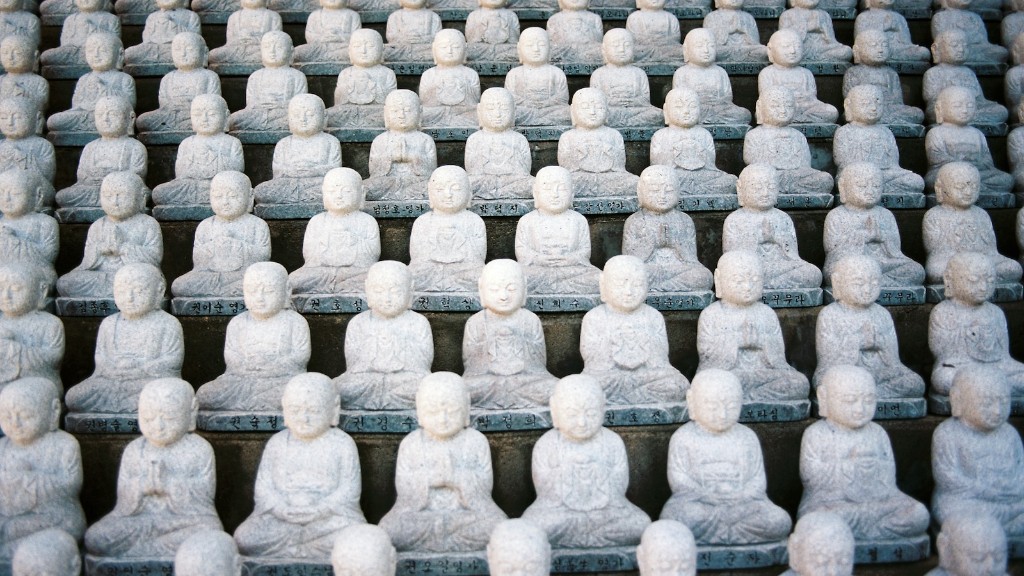Overview of Missionaries and Christianity
Christianity is one of the most widely spread religions in the world. Missionaries are responsible for preaching and spreading the gospel in an effort to bring others to Christ. Missionary work dates back to the early days of Christianity, and proved to be an effective way of expanding Christianity’s reach. This article examines the various ways in which missionaries have been used to spread Christianity throughout history.
Early Missionary Movements
The earliest recorded missionary work dates back to the 1st century CE, when the Apostle Paul traveled to many places to spread Christianity. This trend of missionary work continued throughout the first few centuries of Christianity and led to the expansion of Christianity in Asia, the Middle East and North Africa. Various orders of monks, priests and other individuals dedicated their lives to the missionary cause and many of them were successful in converting people to Christianity.
The Missionary Efforts of the Catholic Church
The Roman Catholic Church has historically been very active in sending out missionaries. During the Middle Ages, the Church actively sent out missionaries to spread Catholicism throughout Europe. The Franciscan, Dominican, and Jesuit orders were particularly active in missionary work during the Middle Ages. In 1522, Pope Leo X issued a proclamation calling for missionaries to be sent to the New World to spread Christianity. This resulted in a wave of missionaries heading to the Americas, with some, like the Jesuits, even reaching Asia and Oceania.
The Protestant Reformation
The Protestant Reformation of the 16th century resulted in an explosion of missionary work. The reformers saw mission work as an important part of their faith, and many of them saw the spread of Christianity as essential to the task of translating the Bible into vernacular languages. Protestant missionaries traveled far and wide, sending the gospel to far-flung places like India, China and Japan.
The Role of Colonialism in Missionary Work
The growth of colonialism in the 17th and 18th centuries resulted in a surge of missionary work. As European nations sought to expand their empires, they also sought to spread Christianity. This resulted in an influx of missionaries to the Americas, Asia, Africa and the Pacific Islands. These missionaries were often part of the colonial administration and were used to pacify the native populations and to spread Christianity.
The Influence of Missionaries in the Modern Day
Today, missionaries continue to be active in many parts of the world. While the methods used by missionaries have changed, the goal remains the same: to spread the gospel and bring as many people to Christ as possible. Many of the world’s largest religious denominations are active in missionary work, and continue to send missionaries to far-flung destinations.
Analysis and Insights
Missionaries have played an important role in the spread of Christianity throughout history. The use of missionaries dates back to the earliest days of the faith and has been an important tool for the expansion of Christianity. Missionaries have been essential for spreading the gospel and have had a major influence in the modern world. Despite changes in methods, mission work continues to be an important part of many of the world’s largest religious denominations.
Evangelization and Missions
Evangelization is one of the primary focuses of mission work. Missionaries seek to share the gospel with their audiences and to bring as many to Christianity as they possibly can. This is often done through sermons, talks and other forms of direct teaching. Missionaries are also active in more indirect forms of evangelism, such as the distribution of literature and the setting up of churches.
Religious Education and Outreach
In addition to evangelism, mission work often involves providing religious education to local populations. This often takes the form of schools and educational programs. These programs serve to educate people about Christianity and instill Christian values in the minds of their students. Missionaries also often engage in charitable activities, such as providing food, clothing and health care to the local population.
Social Impact of Missionaries
While missionaries have been largely successful in their efforts to spread Christianity, they have also had a profound impact on the societies they have encountered. Missionaries have brought with them Western values and customs, and have often imposed these on local populations. This has resulted in a clash of cultures, with missionaries often being viewed as oppressive and unwelcome by the local population.
Impact of the Digital Age on Missionaries
The digital age has had a major effect on mission work. Technology has made it easier for missionaries to reach out to more people, and allowed them to broadcast the gospel to a wider audience. It has also allowed missionaries to keep in constant contact with their supporters, making it easier for them to stay connected. Technology has also enabled missionaries to collect and analyze data on their outreach efforts, providing valuable insights into their work.
Global Reach of Missionaries
The reach of missionaries extends far and wide today, with missionaries being active in almost every corner of the globe. Missionary work is a major focus of many of the world’s largest religious denominations and is seen as an important part of their faith. Despite changes in methods, mission work is still very much alive in the modern era and continues to be an important tool for spreading Christianity.


